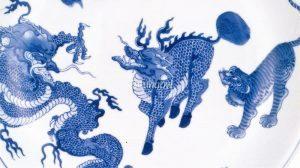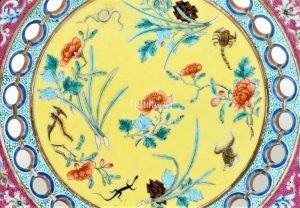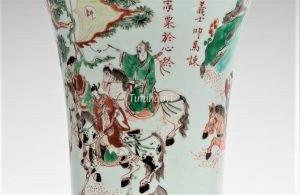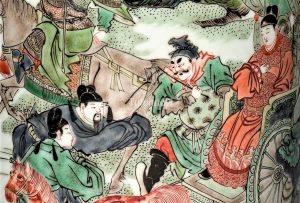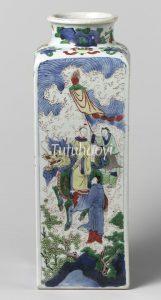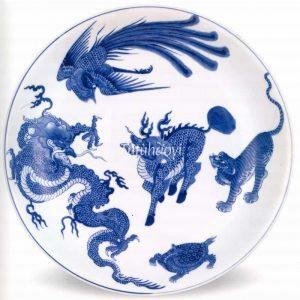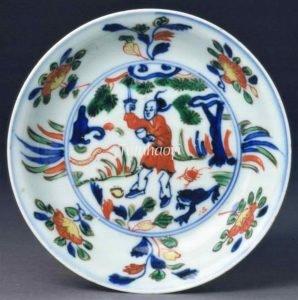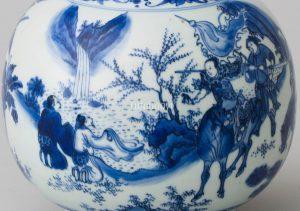Showing Results Containing
Dragon and phoenix are commonly seen motifs in Chinese visual culture. Tiger, qilin and tortoise, at the same time, are favoured creatures symbolic for auspice. But when the motifs of the above five beasts are combined together, they have more mea...
On Duanwu Festival, Chinese people have a variety of practices, such as drinking rice wine sprayed with realgar powder and hanging images of the Heavenly Master on the lintel. Where did this tradition come from and how were these practices depicte...
The following article is a discussion of the substitution of a mythical beast for a horse as Grand Duke Jiang’s mount on three classic porcelain vases adorned with the same story scene of ‘Bo Yi and Shu Qi Trying to Stop the Mighty Zhou Army’. It ...
Through analysing a famous theme that depicts Bo Yi and Shu Qi Stopping the Zhou Army, Dr Yibin Ni has compared a number of porcelain vessels from Ming and Qing dynasties, and demonstrated his unique insight which can facilitate the correct dating...
This is a legendary story about the birth of Confucius (551 BCE – 479 BCE), the renowned philosopher from ancient China during the Spring and Autumn Period (770 BCE – 475 BCE).
According to The Family History of Confucius (孔子家语), Confucius’ father, Shuliang He (叔梁纥), had nine daughters but no sons from hi...
In traditional Chinese customs, the fifth day of the fifth month of the lunisolar calendar is regarded as one of the most dangerous days of the year when evil spirits and hazardous creatures lurked around. Notably, five noxious creatures were identified, known as ‘Continue Reading
Bo Yi (or Boyi, 伯夷) and Shu Qi (or Shuqi, 叔齐) were sons of the ruler of Guzhu (孤竹), a vassal state of the Shang dynasty (商朝, 16th-11th cent. BCE). As the king was getting old, he wanted Shu Qi, his youngest son, to inherit his throne. However, when the father died, Shu Qi asked Bo Yi to take over th...
